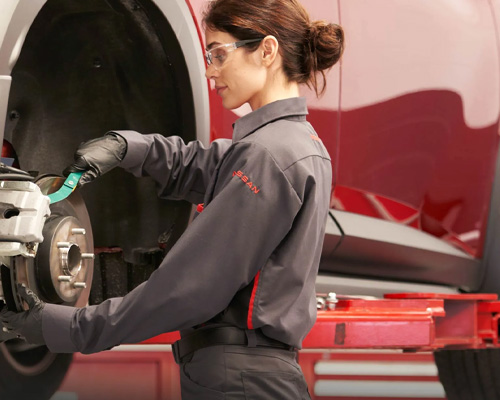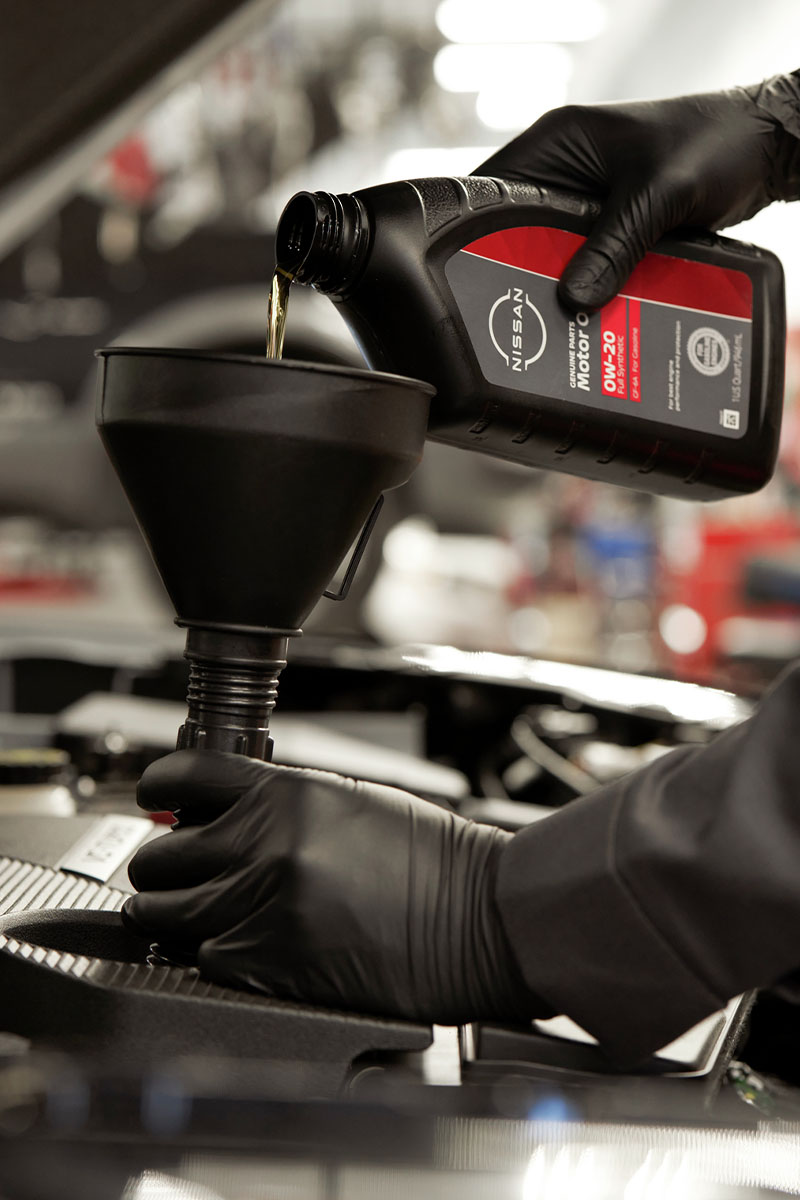Brakes & Brake Pads Service
At Naples Nissan
When it comes to your vehicle’s safety, reliable brakes are non-negotiable. At Naples Nissan, we specialize in brakes and brake pads, ensuring your peace of mind on every journey. Our expert technicians have years of experience diagnosing, repairing, and maintaining brakes. Whether routine brake pad replacement or a more complex issue, we’ve got you covered.
Our comprehensive services include regular brake inspections to catch problems early, preventing costly repairs down the road. We use high-quality brake pads for optimal stopping power and offer rotor resurfacing or replacement to maintain smooth braking. Additionally, we provide brake fluid flushes for consistent performance and caliper service to ensure even braking force. Trust Naples Nissan for all your braking needs, and drive confidently.

Why Choose Our Brake Pad Services?
At Naples Nissan, we prioritize your safety by offering top-quality brake components, including OEM and aftermarket options. Our commitment to transparent pricing ensures you know exactly what to expect, with no surprises. Convenient hours make it easy to schedule an appointment online or by phone. Remember, well-maintained brakes are crucial for safe driving. Don’t delay—visit Naples Nissan today and experience the difference!
Frequently Asked Questions
What is the function of brakes in a vehicle?
Brakes are a critical safety system for a vehicle. The main function of brakes is to slow down or stop a vehicle by converting its kinetic energy into heat.
What are the different types of brakes?
The two main types of brakes are disc brakes and drum brakes. Disc brakes consist of a brake rotor attached directly to the wheel. Drum brakes consist of a brake drum attached to the inside of the wheel.
How often should I replace my brake pads?
Brake pads should typically be replaced after about 50,000 miles, but this can vary depending on your vehicle’s make and model, your driving habits, and the quality of the brake pads.
What are the signs that my brakes need servicing?
What is brake fluid, and why is it important?
Brake fluid is a type of hydraulic fluid used in hydraulic brake systems to create the pressure that slows or stops your vehicle. It’s important because, without it, your brakes wouldn’t work.
What happens during a brake inspection?
During a brake inspection, a mechanic will check the brake pads, rotors, shoes, drum, and brake fluid. They’ll look for wear and tear and ensure everything works properly.
Why does my brake pedal feel spongy?
What is ABS (Anti-lock Braking System), and how does it work?
How does the parking brake work?
What is brake fade?
Brake fade is the reduction in stopping power after repeated or sustained application of the brakes, especially in high load or high-speed conditions. This is usually due to overheating.
Visit Us Today!
When it’s time for new brake pads, trust us to keep you on the road. Visit Naples Nissan, where our friendly staff is ready to answer your questions and provide quality service. Your car’s longevity and your peace of mind are our priorities.


Designed to Fit
Your Schedule
Our Express Services are designed to fit into your busy schedule without compromising your vehicle’s performance and longevity. To accommodate our Express Services offerings, we have two bays that are dedicated exclusively for these services so we can get you in and finished in just 45 minutes.
Oil & Filter Change Service
Battery Diagnostic Check & Replacement Service
Air Filter Replacement
In-Cabin Microfilter Replacement
Tire Rotation & Balance
New Tires
New Wipers
Factory Scheduled Maintenance
Stay Original, Stay Nissan.
Genuine Nissan Parts
Keep your Nissan performing at its peak with genuine OEM parts. Designed and engineered exclusively for your vehicle, our authentic parts ensure perfect fit and function, maintaining your Nissan’s integrity and warranty.
